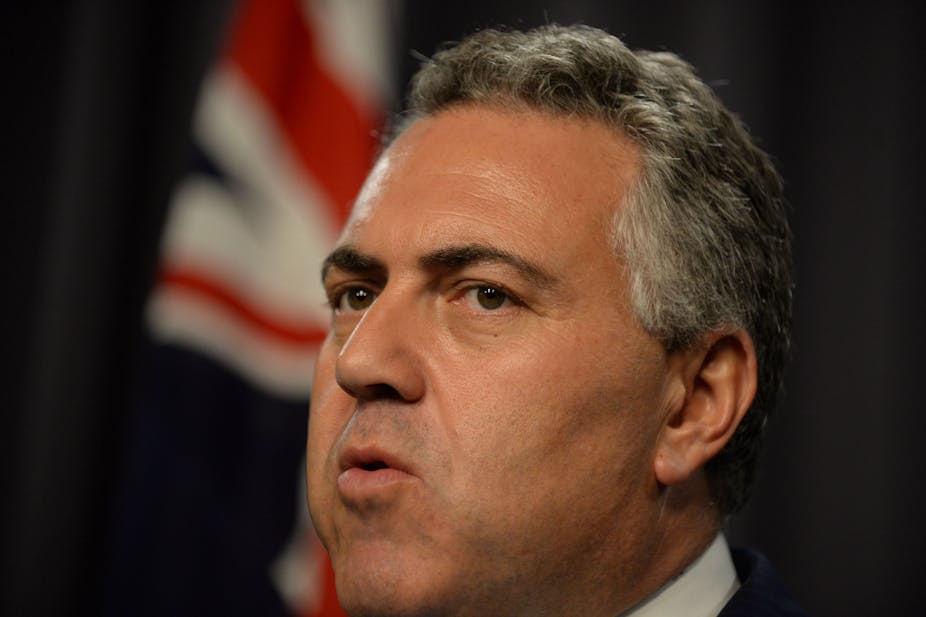Repairing the budget will require more use of means testing and co-payments, Treasurer Joe Hockey has warned, in a speech also renewing his criticism of “corporate welfare”.
Hockey appealed to people not to judge his May 13 budget on what they got or lost in the short term. It was about “our quality of life for the years ahead”.
While indicating the budget will mostly impose pain, Hockey flagged that Tony Abbott’s signature generous paid parental leave scheme still enjoys protection and that there will be a boost to infrastructure spending.
Drawing on its projections on spending growth, Hockey said the Commission of Audit report, with its 86 recommendations, will be released next Thursday.
He told a function hosted by the Spectator magazine that while stronger growth was part of addressing the budget problem, it wouldn’t be enough to get back into the black.
Without policy change, to return to surplus within five years would require real annual economic growth of 5.25%, far beyond the current potential growth rate of about 3.25%.
Nor could the problem be solved just through increasing taxes. Without policy change, in a decade an extra three million taxpayers would have taxable income falling above the $80,000 threshold that sees additional earnings taxed at the top or second rate of 45 or 37 cents.

“Those who may oppose the hard savings measures necessary to deliver genuine fiscal repair would do well to recognise the highly regressive nature of fiscal drag,” Hockey said. The three million would not be “High Street executives on the top marginal rate but hard working wage and salary earners on Main street”.
“The only sustainable solution is to wind back the excessive levels of spending,” Hockey said.
This would mean difficult decisions at the individual program and payment level, winding back some spending that people “have come to take for granted”.
“Means testing must become an even more important part of Australia’s transfer system to ensure the sustainability of our income support payments. Support must be targeted to those most in need,” he said.
With the budget set to impose a co-payment for GP visits, Hockey said “more use of co-payments should be made to encourage some moderation in demand for government-provided goods and services. Nothing is free. Someone always pays.
"It is appropriate that those who use government services should contribute towards their cost.”
He said that in its analysis of spending over the medium term the commission’s report focused on the 15 largest and fastest growing programs predominately across welfare, health, education and defence. They were almost all set to grow faster than average growth in total government spending.
Hockey homed in particularly on the age pension, which he is targeting in the budget. The pension age is expected to be lifted to 70 in the longer term.
“Of the 15 programs, the report observes that the age pension is the largest by a fair margin. The $40 billion we spend on income support through the age pension is much more than we spend on defence, or hospitals, or schools each year. It is our single biggest spending program. Spending on the age pension already takes up 10% of all Commonwealth spending.”
On corporate welfare, Hockey said that too ofter previous governments had been drawn into areas that were better left to the private sector. “It is unsustainable for the Commonwealth to keep devoting significant resources to industry assistance.”
Hockey said the fiscal consolidation program to be revealed in the budget would establish a clear path back to a surplus of 1% of GDP in 2024.

